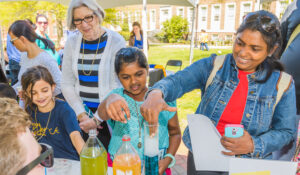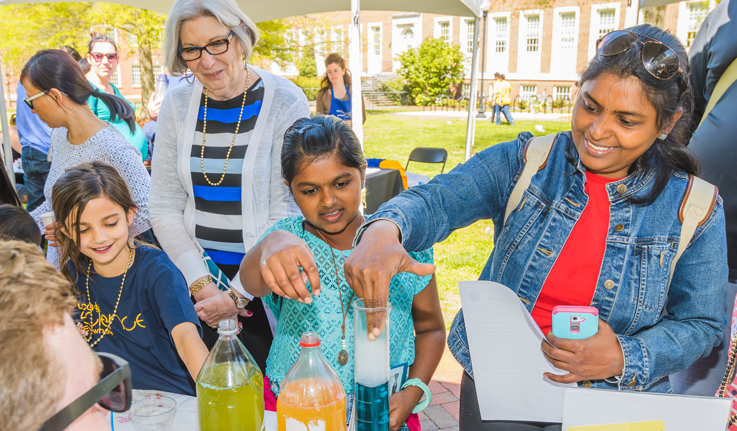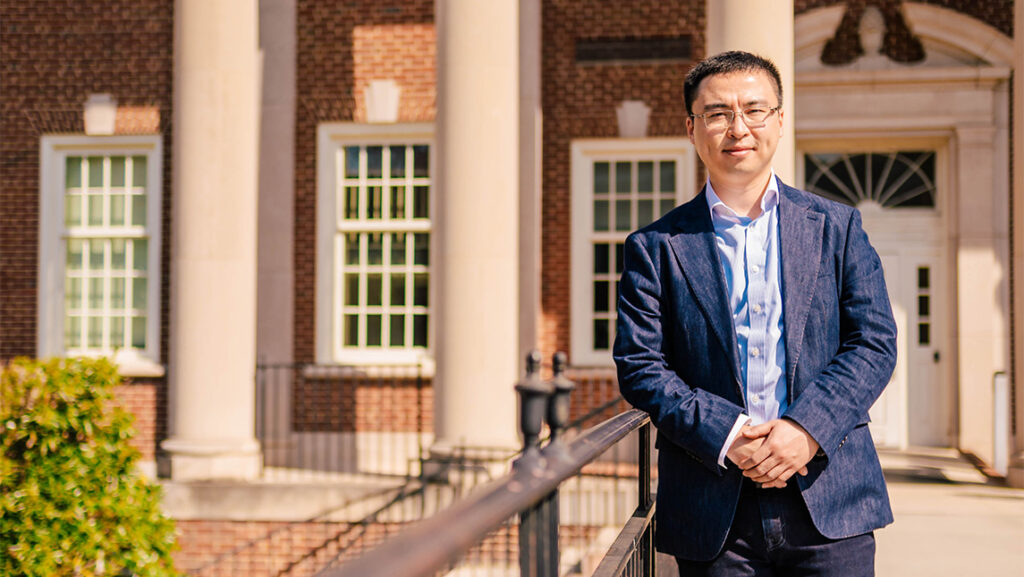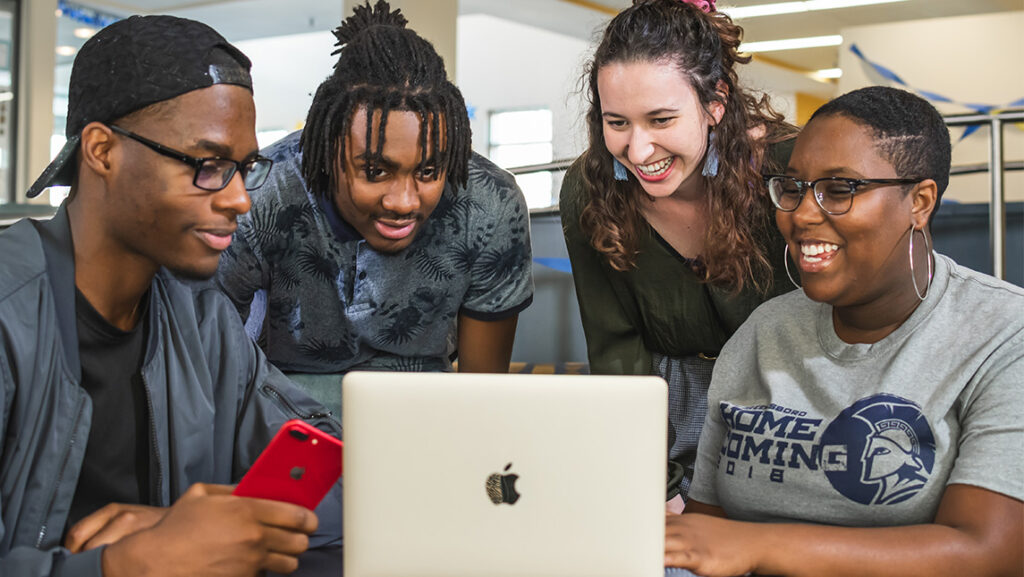 It’ll literally be science everywhere at UNCG this week.
It’ll literally be science everywhere at UNCG this week.
Thursday, as part of the NC Science Festival, the Joint School of Nanoscience and Nanoengineering will host its seventh Gateway to Science event. JSNN graduate students will do over 30 hands-on experiments with participants of all-ages, exploring concepts such as Lenz’s Law, the physics of pendulums, and the Bernoulli Concept. This year, JSNN will be joined by First North Carolina and the Triad Impactors to further expand the impact of the event.
Gateway to Science is Thursday, April 11, from 9 a.m.-5 p.m. and is open to all.
A few days later, UNCG will again celebrate science in all its forms with the all-ages Science Everywhere event on April 13. This year’s theme is “Made in North Carolina”, celebrating local makers and innovators. Become a scientist for the day with a variety of exciting activities such as measuring the iron in a cheerio, programming a robot, using a 3D printer, and more than 70 other opportunities to explore the science that surrounds you every day. Take home your projects, as well as prizes and t-shirts, and enjoy food from on-campus restaurants and local food trucks.
Participants will check in at one of four welcome centers, where they will receive an activity passport and a free bag. They are then free to explore the campus, exploring, discovering, and creating as they go. Children and families will be able to engage hands-on with new scientific principles, and interact with experts in many fields.
Science Everywhere is free and open to all, and is ideal for children aged 3-18. Parking in all parking decks will be free for the course of the event.
The event is April 13 from 12-4 p.m. For more information, see the website here.
The event is sponsored by the UNCG Research and Instruction in STEM Education Network, the School of Education, the Provost’s office, and two National Science Foundation-funded projects.
Compiled by Avery Campbell.



